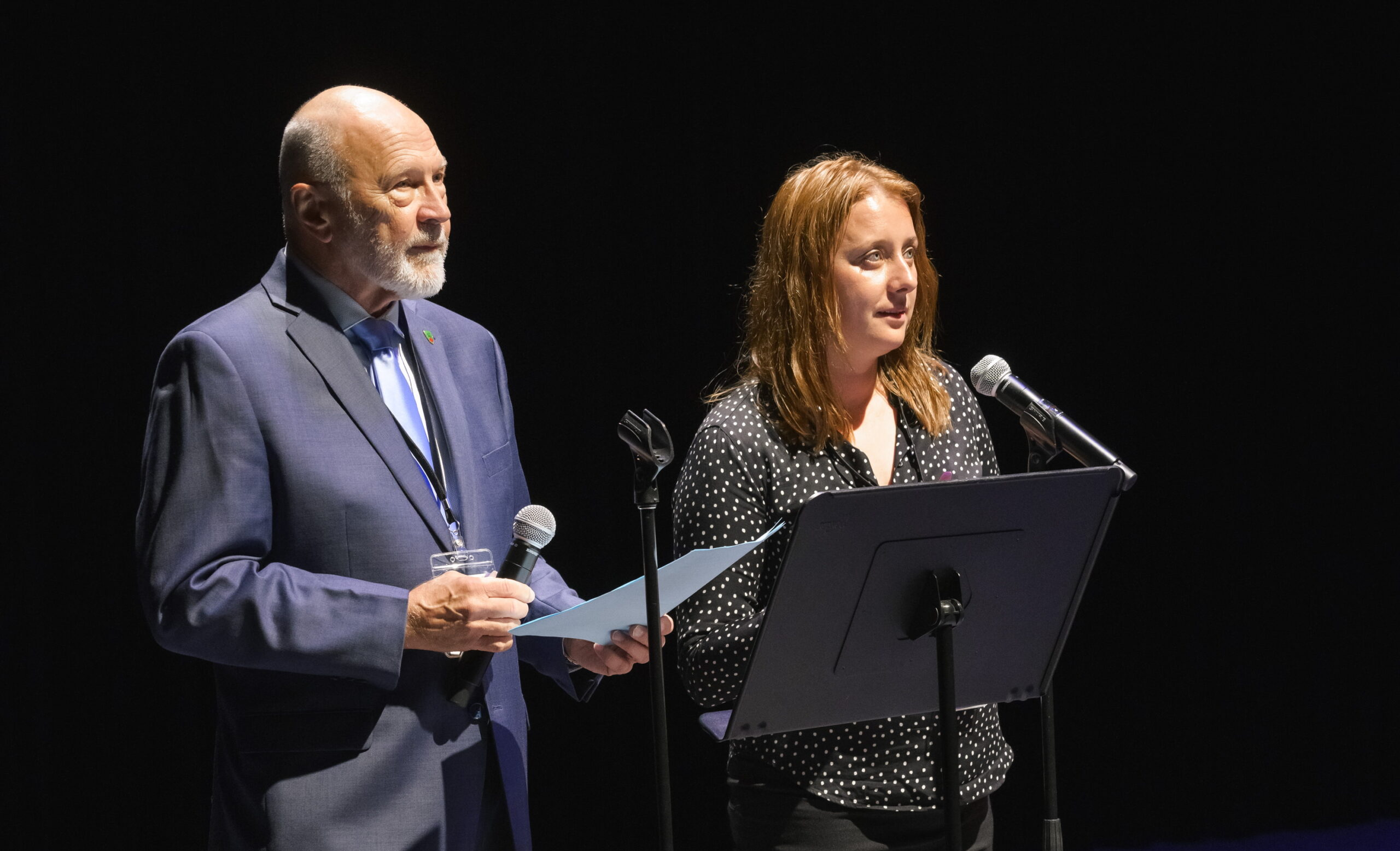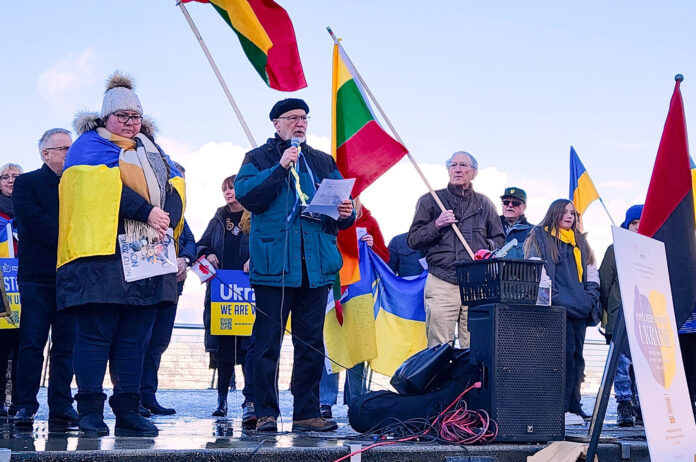
Parting Words from President Algis Jaugelis
Vancouver, BC, is currently home to one of the most active Lithuanian communities in Canada. Soon to retire, president of the BC chapter of the Lithuanian community Algis Jaugelis answered questions about the community and his past activities.
When did you first get involved with LCBC in a leadership role?
I joined the LCBC board in 2018 as a member at large , and the next year became president.
You served as president from 2019 to the present. Describe some of your successes and challenges in that role:
In my first year as president, it became clear to me that to be relevant and to have a future, we needed to engage younger Lithuanians (third and subsequent-wave of immigrants) who have decided to make Canada their home. This cohort is very different from my generation, and very different from the generation that founded the various communities that make up the KLB.
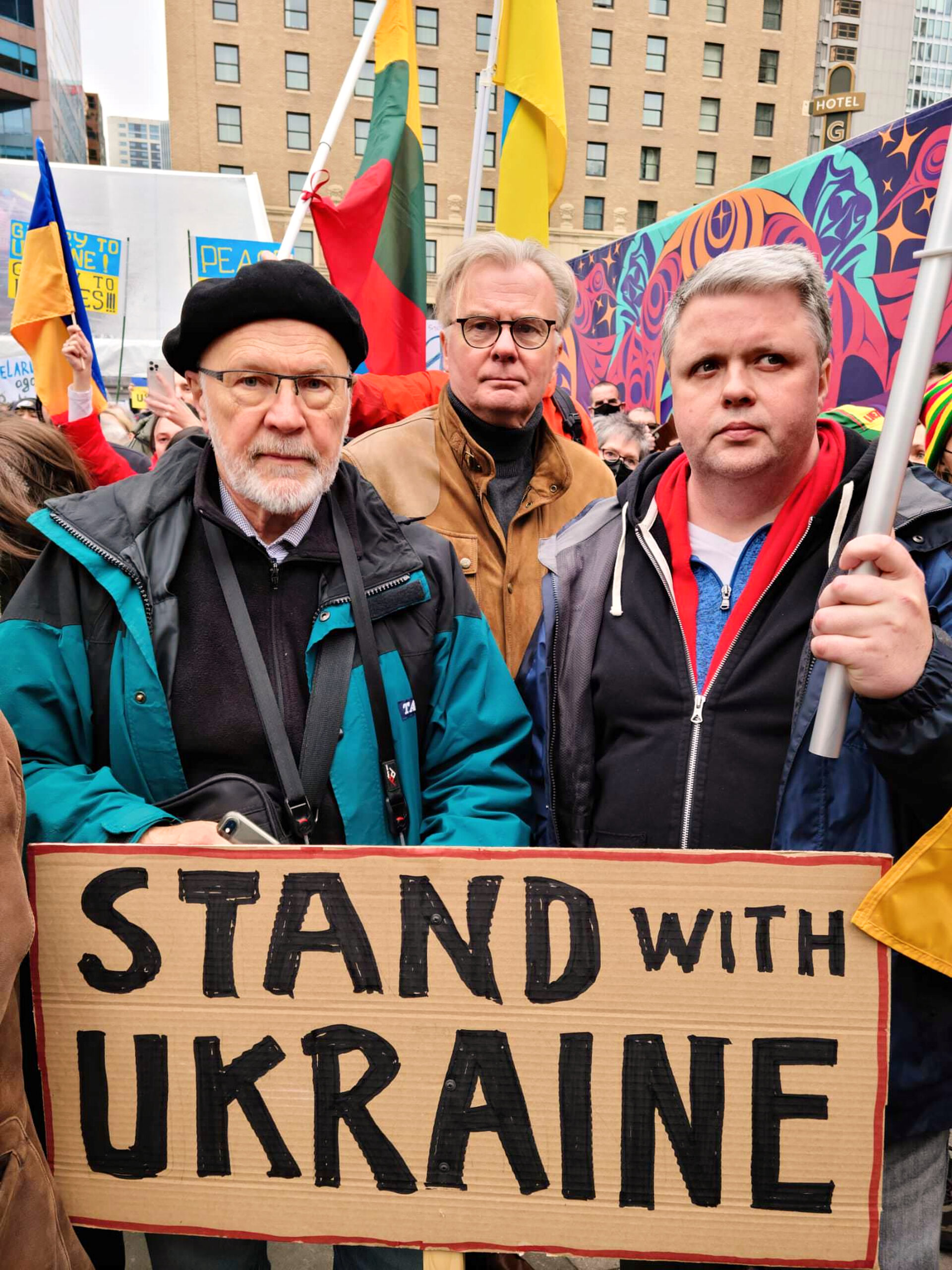 Our efforts in 2019 showed some success. We experimented with open houses and restaurant outings aimed at newer arrivals to Vancouver. Our communications attempted to convey vision, outreach, community, and hope. Newcomers attended our events, and new relationships were made.
Our efforts in 2019 showed some success. We experimented with open houses and restaurant outings aimed at newer arrivals to Vancouver. Our communications attempted to convey vision, outreach, community, and hope. Newcomers attended our events, and new relationships were made.
The Covid-19 pandemic quashed our activity in early 2020, however I was determined to continue reaching out to potential new members and recruiting new leaders to the organization when possible. In August 2021 we returned to outdoor events, celebrating Joninės, commemorating the Baltic Way on the beach, and holding a fall Kugelis potluck in a Vancouver park. Our 2021 Christmas potluck—held in person with health and safety protocols—ended the year with optimism for the future, featuring new community members and volunteers as well as a visit from ambassador Skusevicius.
The year 2022 was characterized by new energy and greater participation in our organized events. We responded to Russia’s invasion of Ukraine with active participation in public anti war rallies starting in February. In March we held a virtual Open House and community consultation. In May we organized a sold-out Ukraine fundraiser together with the Estonian and Latvian communities; in June we celebrated Joninės on a larger scale together with the Estonian community, and ended the year with a “Cepelinų Balius” banquet that raised $4,225 for Blue/Yellow for Ukraine USA.
This trend continued throughout 2023, and we held more well-attended community events than we’ve had in many years, including the Andrius Mamontovas concert in September and a year-end Christmas fundraising banquet held just last weekend. These events would not have been possible without the ideas, energy and enthusiasm of a new generation of community organizers in Vancouver.
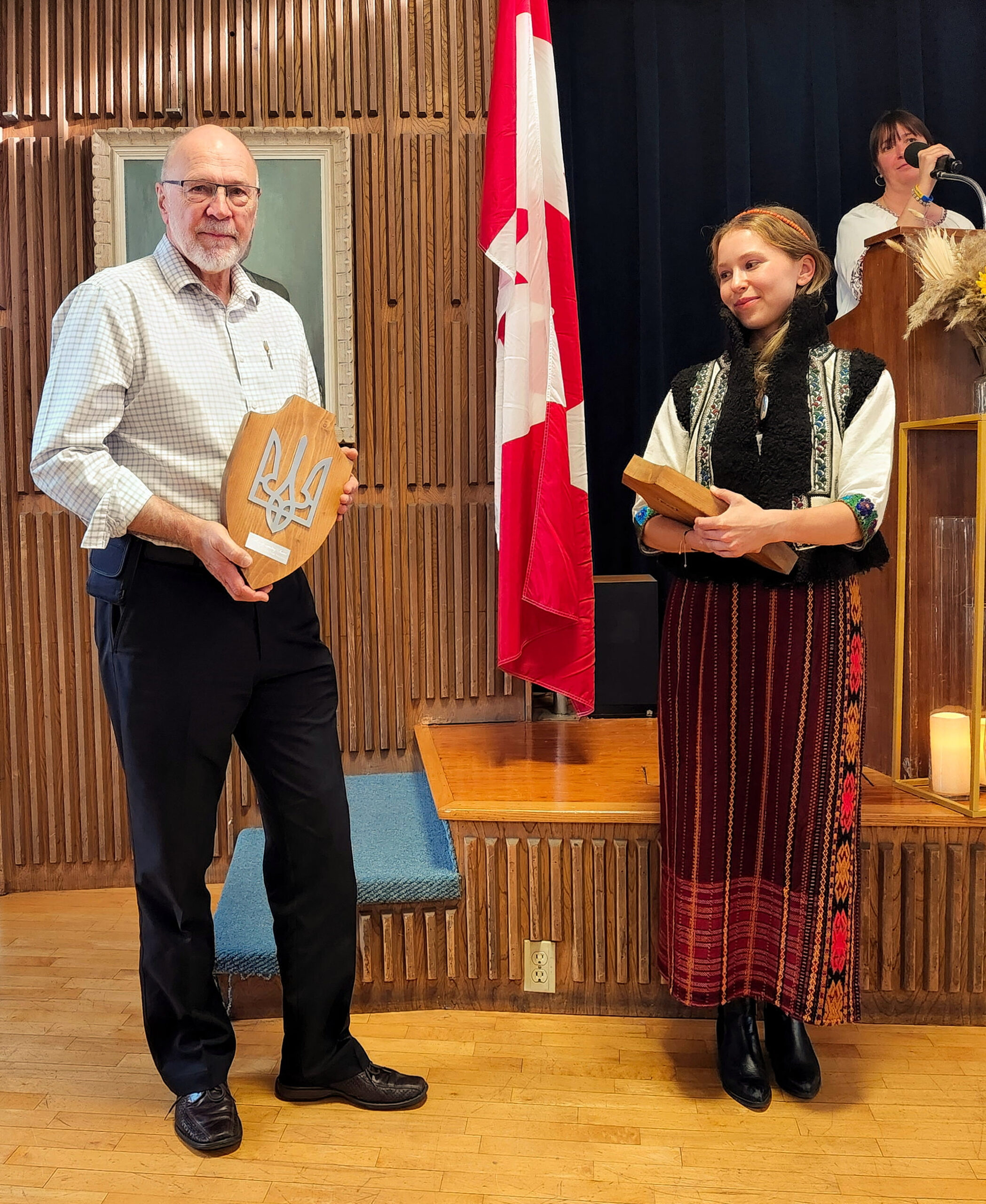 You have been active and publicly vocal in your support for Ukraine, ensuring that the Lithuanian community in Vancouver has been a visible ally of Ukraine (and the local Ukrainian Canadian community) throughout more than 600 days of this war. Why is it important for diaspora Lithuanians to be active in their opposition to this war?
You have been active and publicly vocal in your support for Ukraine, ensuring that the Lithuanian community in Vancouver has been a visible ally of Ukraine (and the local Ukrainian Canadian community) throughout more than 600 days of this war. Why is it important for diaspora Lithuanians to be active in their opposition to this war?
First, it is a matter of principle: this is an unjust, unprovoked war of aggression within Europe that we did not imagine would be possible after WW2. Knowing the suffering and oppression our family members and relatives endured under 50 years of Russian oppression, we cannot ignore the suffering of Ukrainians or the threat that Putin’s unchecked ambitions pose for the Baltic states, Poland, and, if he succeeds there, to the rest of Europe. Second, we empathize with what this grinding war means for the daily life and long-term future of Ukrainians to a greater degree than most Canadians and Americans, for whom this is just another conflict in a faraway land.
What are you most proud of as you prepare to pass the torch of leadership?
I am proud of the dedication and enthusiasm of the board members and volunteers who appreciate the value of community and who have a stake in its future. It is they who now initiate and deliver meaningful community activities.
I am also pleased that we have renewed our ties with members of the Estonian and Latvian communities, and developed new ties with several Ukrainian community organizations as well. Our Baltic Way commemorations have evolved into Black Ribbon Day commemorations that we organize jointly with these communities and the BC chapter of the Canadian Polish Congress.
It has also been rewarding to see a growing number of individuals participating as active volunteers at our events, from among whom future leaders will emerge.
What words of advice, hope or caution do you have for the next generation of community leaders?
My guiding principle has been to communicate vision and values, hope and optimism, with the confidence that we will achieve something important, something of value together. It has also helped me greatly that unlike many adults of my generation born in the 1950s, I am a fluent speaker of Lithuanian.
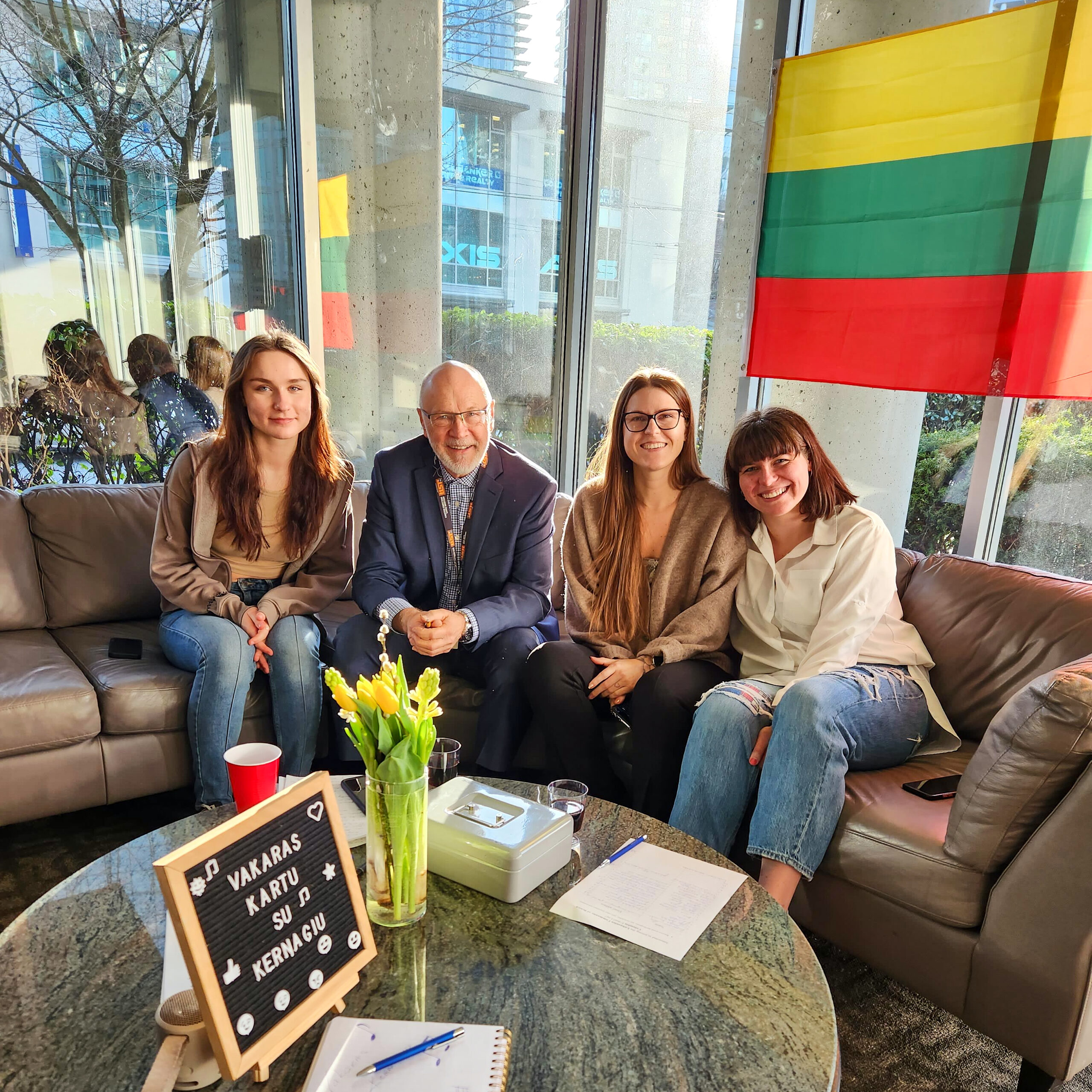 I have also listened carefully when others have suggested ideas or projects. For example, our biggest event of 2022—our Cepelinų Balius fundraiser for Blue/Yellow for Ukraine USA—came from two younger community volunteers who conceived the event and shyly approached me, wondering if we would support it: we did, and they executed it together with their friends and with help from the Board. It was a great success and inspired others to generate and share new ideas. And our biggest event of 2023—the Andrius Mamontovas concert—was the initiative of a new board member and was successfully executed with significant participation from the other directors and many volunteers.
I have also listened carefully when others have suggested ideas or projects. For example, our biggest event of 2022—our Cepelinų Balius fundraiser for Blue/Yellow for Ukraine USA—came from two younger community volunteers who conceived the event and shyly approached me, wondering if we would support it: we did, and they executed it together with their friends and with help from the Board. It was a great success and inspired others to generate and share new ideas. And our biggest event of 2023—the Andrius Mamontovas concert—was the initiative of a new board member and was successfully executed with significant participation from the other directors and many volunteers.
As I reflect on the past five years, I am pleased by how far we have come, by the vitality I see, and that gives me great hope for this community in the future.
